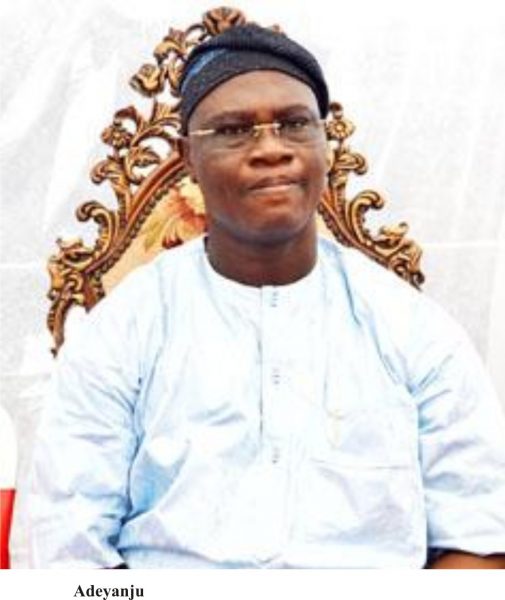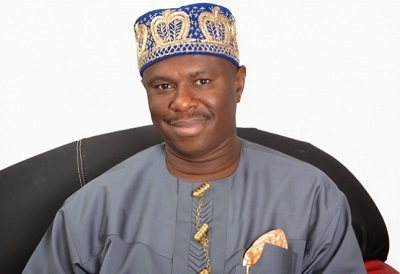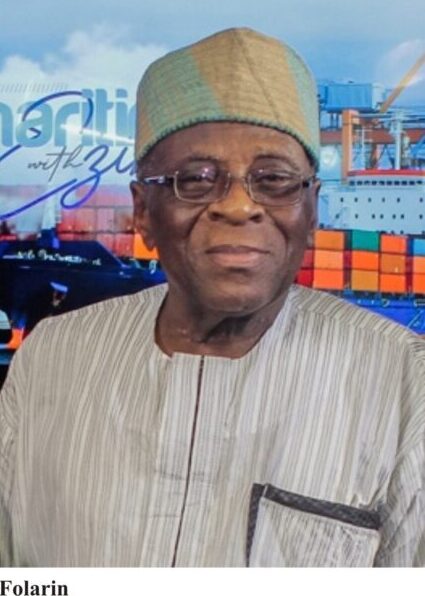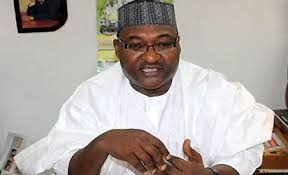More Patrol Vessels Needed to Secure Nigerian Waters- Onyung
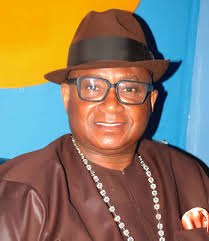
By Kenneth Jukpor
Dr. Mkgeorge Onyung is the new President of the Ship Owners Association of Nigeria (SOAN). In this interview with MMS Plus newspaper, he expresses his views as well as strategies to secure Nigerian waters, he also reveals his leadership style as SOAN President and addresses other pertinent issues in the shipping industry. Enjoy it:
How would you appraise the state of the nation’s waters in terms of security?
The Nigerian territorial waterways include a coast line of over 800 nautical miles and it needs to be protected. As President of SOAN, I will need to engage the Nigerian Navy, Nigerian Maritime Administration and Safety Agency (NIMASA) and the stakeholders that are controlling the security. That way, we will be able to know where they are and provide suggestions.
I don’t know how many patrol boats that the requisite security agents have now and we have to gather some knowledge as to what inventory of equipment that they have. We will be able to understand their operations to enable us to get this information. It still boils down to having sufficient patrol vessels. If there is any incidence, three or four patrol boats can converge. Within one hour or two hours, they would have surrounded the troubled area. If this happens, the show of force will curtail these pirates. If you have superior firepower, equipment, intelligence or surveillance strategy, we will be able to outwit these bandits who are desperately looking for money.
However, the government must also begin to look at more innovative approach towards curtailing the unemployment of youths by giving them jobs to do. I remember those days that we had “baba kekere” fishing boats. A lot of people were gainfully employed and we still have a lot of fish in our waters. I was in fishing before and with the experience that I have had there, I know that fishing is good job to venture into.
When you also talk about fishing, you should also talk about storage and electricity too. These fishes are stored in the cold rooms and this requires electricity. As soon as fiscal incentives and basic amenities are given, people will be able to fend for themselves. I am also aware that the United Nations and International Monetary Fund (IMF) do not fund markets. Before now, they used to build markets, roads and so many other things needed, but what they do these days is to allow people to be gainfully employed and leave them to provide the amenities themselves.
If the government could get electricity working, people would be able to operate cold rooms, preserve their fishes and also process them. A fish processing plant can employ up to about 200-300 people. When they are busy and getting some money, they will begin to think about the future.
There seems to be a global conspiracy alleged by some industry experts as a result of certain charges like ‘Extra War Risk charge’ attached to shipping in Nigeria. From a veteran perspective, is this fair on the nation?
I think everybody in business wants to make profit. There are definitely some security threats in our waters. A school of thought believes that this is critical while others believe that it is not too critical. Also, carrying containers and goods is a big responsibility and I feel those responsibilities will have to cover the risk. I am a ship owner and we have been attacked by pirates, so I know how it is. I will not agree with the conspiracy. Those who don’t have usually feel that those who have are oppressing them. However, if you have the knowledge and you begin to see within the prism of those who are entrepreneurs, you will see that they need to make profit. If they don’t make profit, then they will go out of business and this will create unemployment. The same people who are saying they are conspiring to rip them off are the same people that will complain about the unemployment.
We are going to look into it and examine it properly so that the global insurance companies can do what they have to do and we will do our own part too.
Some of these charges are penalties on ports and cargoes as a result of the environment and other issues. There is also the aspect of negotiation with the Council involved as it affects the country which is the Nigerian Shippers’ Council. From your perspective, do you think there is enough dialogue between the Council, global insurance bodies and underwriters to periodically review these charges to reflect the state of the ports or security of the waters?
The Nigerian Shippers’ Council was formulated to create a balance and look into issues like this. We also have the Nigerian Chamber of Shipping which is an advocacy group and I know that a lot is been done on that level as regards trying to bring stakeholders to discuss these issues. They will also bring up solutions, discussions and attempt to solve the problems. The maritime industry is evolving and everybody operating in the sector has to be patient. Rome was not built in a day, but at the same time, it was not built in a million years. So, we are not going to wait indefinitely.
I am a member of the Governing Council of the Chamber of Shipping. So, I know that the Chamber is doing a lot to bring up these issues based discussions. By the time they come up with a communiqué, they will be able to address that issue.
Recently, the International Maritime Bureau (IMB), one of the agencies responsible for appraising the international maritime space as regards security and other issues said that the Nigerian waterways are now safer. Do you think that this statement could create an opportunity for the nation to appeal for the reduction of these charges?
Yes. That is why people do appraisals and they will have Key Performance Indices (KPI). All these indices will help to guarantee progress and ensure that certain reports can be reviewed. It is an effort in the right direction. It gladdens my heart to hear such kind of report. I believe that if NIMASA, Navy and stakeholders who are involved improve on the security of our waters, the report will keep getting better. When the report gets better, then you can now begin to advocate. I will suggest that the Chamber of Shipping should put this as part of their activities if they haven’t done it before and address the issue.
As the President of SOAN, how do you intend to integrate the necessary agencies and stakeholders to ensure that they have the same vision and address several issues in the industry?
In the past it has been talk shows, photo-shops and glamour events and we haven’t made any progress with that. Although we have been sounding the gong, playing the music and sometimes when you play music for a very long time, it becomes too familiar. Even before the person starts singing, you know the lyrics.
In my tenure, I have stressed that it’s going to be a system of issue-based engagement. When we go to the Navy, we are not going to be talking about the port; we will be talking about security and approvals that are necessary for their operations to take place. If we go to NIMASA too, it’s going to be a different ball game entirely. It would not be a situation of one man going around, holding the microphone and speaking. Rather, it will be a situation whereby our group having studied and understood the issue on ground, based on our vision, we would seek negotiation and utilize a strategy to engage the particular department.
It is not okay to discuss with the leadership of NIMASA or any other organization. We would engage that department whose duty is to implement most of the things that affect the industry.
Look at the Cabotage Vessel Finance Fund (CVFF). When we talk with them on a regular basis, we would be able to come up with solutions that will be forwarded to their management. If there are any collaborations, agreements or MOUs to be signed, to commemorate the result that we have achieved, it will be done.
The issue of the non-disbursement of CVFF has been ongoing for a while now and everybody is just talking. The government and the maritime agencies think that ship owners need to be one body. Even a human being with the eyes, hands, nose and teeth usually experience a situation when one part of the body revolts against the other. One eye is itching, at the same time the nose is watery. However, in order to contain the issue, we need to have one voice. We can be many bodies but it is important that we all speak one language. There is one ocean and anybody who is in the ocean is in the same boat, it doesn’t matter what kind of ocean that you are in. You need to survive and come out with the wealth of the sea.
At SOAN, need to extend the olive branch to other associations. If there is anybody who does not take full responsibility of the ocean, then we would not have any sustainable blue economy. All the people that make use of the ocean must be able to ensure that it is sustainable for our growth. The language of the ocean is clear to the professionals and so this will make it easier to have inter-associational collaborations. If this is done, you will see that some of these issues that have been on for years will be settled.
Looking beyond CVFF, there are other means of exploring access to funds for shipping. Do you intend to explore other sources of generating funds for the industry especially for ship acquisition?
We have been hammering on CVFF for 15 years. However, you are right, there are other innovative means out there. I have not unveiled my full plans, but by the time I do, we will be able to look at other innovative plans of funding. We are trying to carefully look at them as we want the ones involved in both the payment and collection of the money. This is why we cannot just jump at any fund that we see.
We have our four committees at SOAN right now and they are working. We are going to have issue based groups to engage other associations. If we have an issue based group that is dealing with CVFF fund, they will be able to come with their blueprint which will be our negotiating document.
On the dockyards and the operation of such facilities, what is your perspective on it? We have NIMASA floating dock but it doesn’t seem to have patronage. Some people are of the opinion that such investment should be handled by private entrepreneurs. What is your take on this?
I just took over as President of SOAN barely two weeks ago. I didn’t attend launching the NIMASA floating dock. Notwithstanding, it is on record that there is a floating dock. I don’t know what is holding its operation or limiting patronage of it. Again, these are questions that need answers. We are going to engage NIMASA and if it is a professional problem, then we can advance our voice and give suggestions.
However, the government is not good at these things. They could lease it to someone and there are so many alternatives and innovations that can be put into it. It was a good thing to get it initially, however we need about ten of such equipment. We don’t need just one because shipping is a big business. Some of our members have 30 ships and it means that very year, 10 of them must be drydocked. This also means that one of these ten ships is drydocked every month. We have other companies that have close to 40 ships. This shows that we have about 12 ships that are supposed to be drydocked regularly and if we are going to wait for one dock, we are going to wait for days. If we have 10 docks, then 10 vessels will have safe haven when they get in to be repaired. Ships are not like cars. If you are travelling abroad, you can remove all the tyres and use a block to hold your car. If you keep a ship at sea, you must also make sure that you protect it because it can create pollution or environmental problem to others. Even if the ship sinks, you are still the owner of the ship, you have the responsibility to remove the wreck. If you block the ocean with your own ship, then others cannot use the ocean. Nobody has any lane in the ocean too. The ocean must be protected and that is why we have the International Maritime Organization (IMO).
A senior Naval officer recently stressed that there are about 33 maritime security hotspots that need manning and attributed lack of adequate resources to why the Navy have just been able to man nine of these areas. What do you think about such development?
The commander in chief of the armed forces is Mr. President, Mohammadu Buhari. I think such matters should be directed to him because he is well equipped to answer that question. However, the President will not give a job to someone and ties his hands backward. So, if he has given the job to somebody to secure, he must make provision for the man to do his job.
We are in support of the government releasing funds and equipment to the Navy so they could be effective. These hotspots are not night clubs, they are real. If you enter there without been fully equipped, then you would risk your live. These are tactical and high level security issues that I can’t discuss. So whatever they need to perform their task, they know the best place to go but we will support them if such effort is required.



